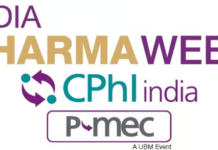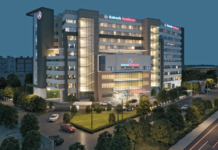Bengaluru, May 15, 2016: The Indian pharmaceuticals market is the third largest in terms of volume and thirteenth largest in terms of value. Branded generics dominate the Indian pharmaceuticals market, constituting nearly 70 to 80 per cent of the market. India is the largest provider of generic drugs globally with the Indian generics accounting for 20 per cent of global exports in terms of volume.
Indian pharmaceutical sector accounts for about 2.4 per cent of the global pharmaceutical industry in value terms and 10 per cent in volume terms and is expected to expand at a Compound Annual Growth Rate (CAGR) of 15.92 per cent to US$ 55 billion by 2020 from US$ 20 billion in 2015.
The country accounts for the second largest number of Abbreviated New Drug Applications (ANDAs) and is the world’s leader in Drug Master Files (DMFs) applications with the US.
Drug discovery is the process by which new chemicals are discovered that have potent effect towards any disease condition. Drug discovery in India is entirely different. Drug discovery in India is very limited as they face several challenges. A few among them other than regulations include insufficient innovation, low appetite to risk, funding, shortage to skilled professionals, Intellectual property protection, etc.
Funding of drug discoveries:
Funding of drug discoveries is the most crucial of all the stages of drug development. As drug discovery is a long term process involving the need of the market, pre clinical and clinical trials, product approval from FDA followed by commercialization of the discovery. Based on the requirement funding could be done in house or by government grants and loans. For instance government do promote discovery of orphan drugs and for disease to tackle the immediate relief (eg. Zika Virus, swine flu). More funds are required as the drug discovery is based on trial and error method and success ratios are very low.
Discovery strategies:
Discovery is done on the basis of market need, to tackle the immediate spread of disease, any gap in the existing medications; poor response to the existing medications forms the base for the drug discovery, novel route of administration leading to good bioavailability and response.
Pre clinical studies:
In drug development, pre clinical development is the stage before the clinical development, where studies are conducted on animals especially rat, mice, guinea pigs, etc. The main focus during these studies is to find the safe dose that can be administered to human for clinical studies. Pre clinical studies form the foundation of safe dose that can be given for the next level of drug development. During pre clinical studies Absorption, Distribution, Metabolism and Elimination studies are also conducted along with in detail toxicology studies. Toxicology studies are of prime importance during pre clinical phase.
Clinical Studies:
Clinical studies or clinical trial are experiments done on healthy human beings. Clinical studies are divided into 4 phases. Clinical study aims to ensure the scientific validity and reproducibility of the results. Trials can be quite costly, depending on a number of factors. The sponsor may be a governmental organization or a pharmaceutical, Biotechnology Company. Clinical trials are conducted on volunteers only and no one could be forced to enroll for clinical trials. After successful completion of Phase-III studies, report is send for FDA approval. This report contains all the information from drug discovery to pre clinical studies to clinical trials. FDA reviews entire drug development study and gives approval to the drug molecule. Post approval, Phase IV post marketing surveillance is conducted to determine all possible side effects and drug adverse reactions.
Success in drug discovery:
The rate of success in drug discovery is very low. Out of 10,000 molecules developed synthetically or extracted from plant or animal origin shows strong results to enter pre-clinical studies. Out of every 100 molecules that clears pre clinical studies only 2 or 3 molecules with promising results clears Phase III clinical studies and gets approved.
Challenges to drug discovery:
Drug discovery itself is a big challenge as it takes long duration to hit the right molecule. Other than this poor regulatory policy, Insufficient Intellectual property protection, multiple window clearance, clinical trials approval pose serious challenges for Indian pharmaceutical to discover new molecules.
Future outlook:
New drug discovery and development in India has potential to improve healthcare system. The capabilities that Indian pharmaceutical companies have to develop generic molecules show our ability to drug discovery. The growth and risk taking abilities of domestic pharmaceutical research and development sector can serve as a key driver of economic growth, and improve the access to healthcare services.
Conclusion:
Drug discovery is a long process that requires vision, risk taking appetite, intellectual property protection and government support to initiate the research and development work and gain success. Only focusing on generic drug development and manufacturing will kill the innovation that is prevailing within the industry. Knowing the fact that drug discovery has higher failure rate but passion to innovate will boost drug development in India.
Corporate Comm India (CCI Newswire)























